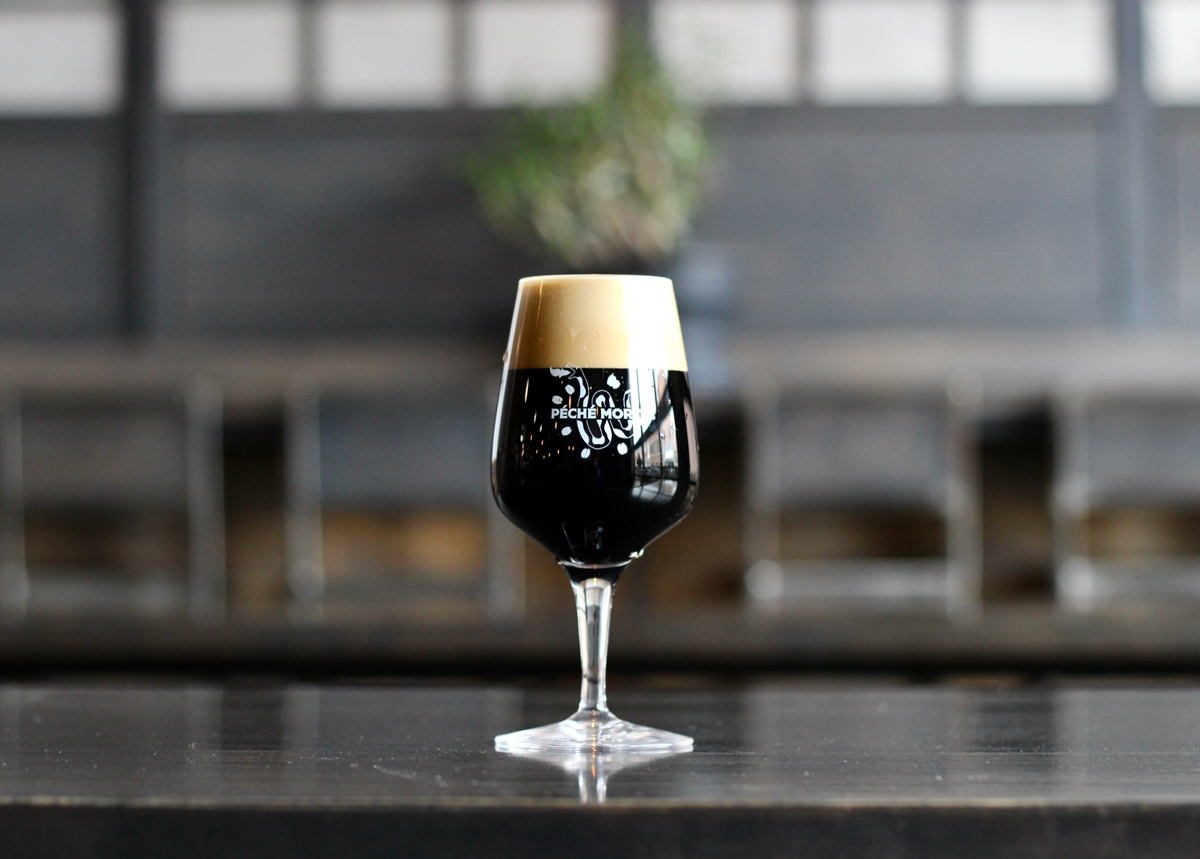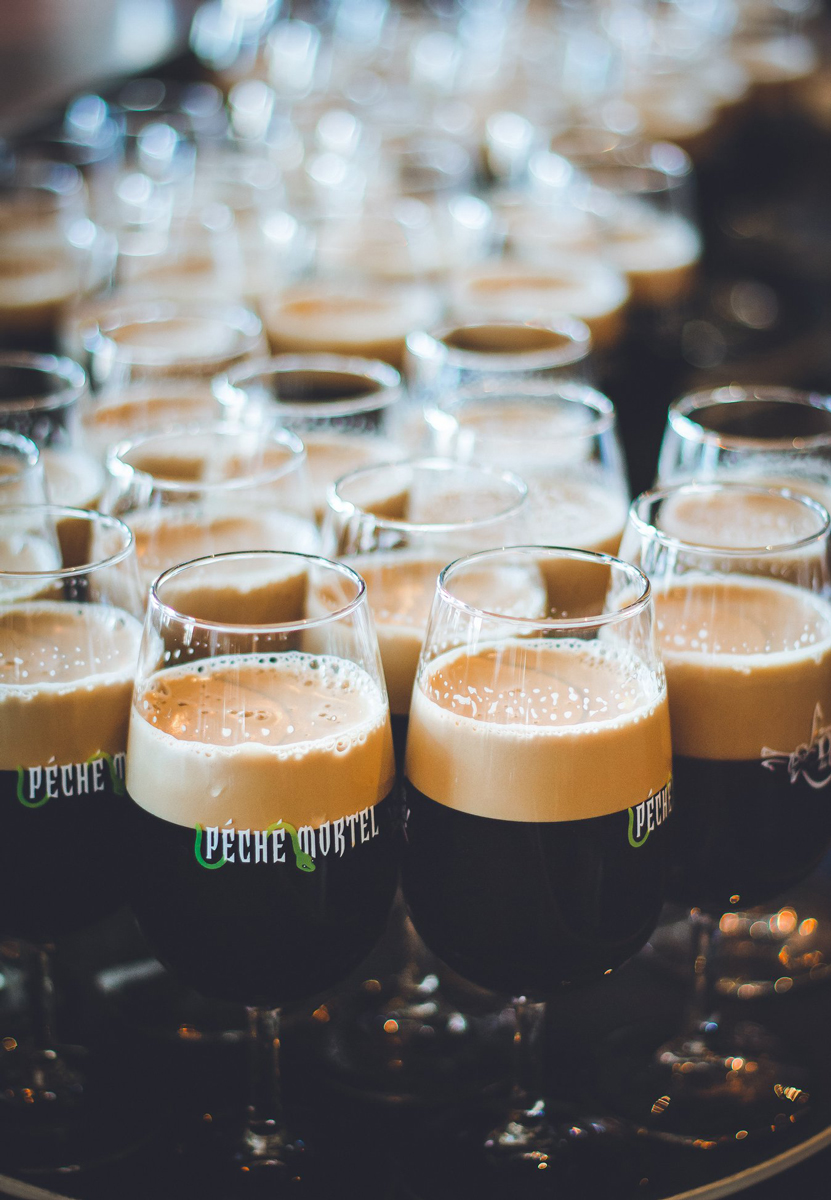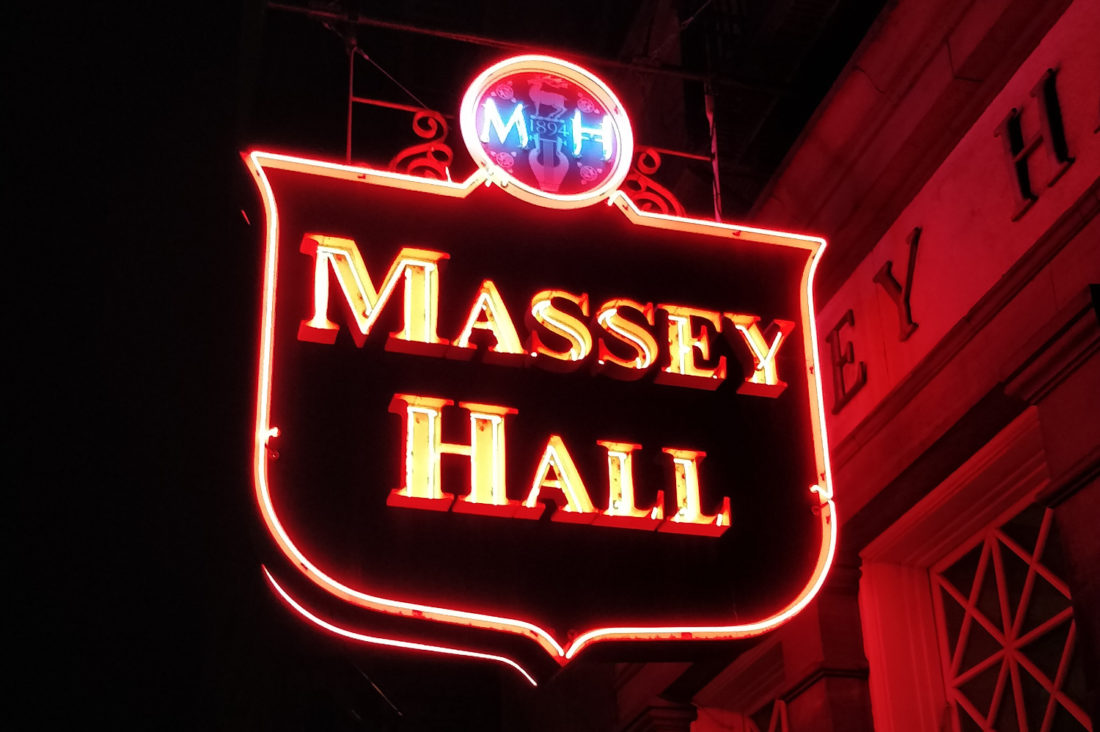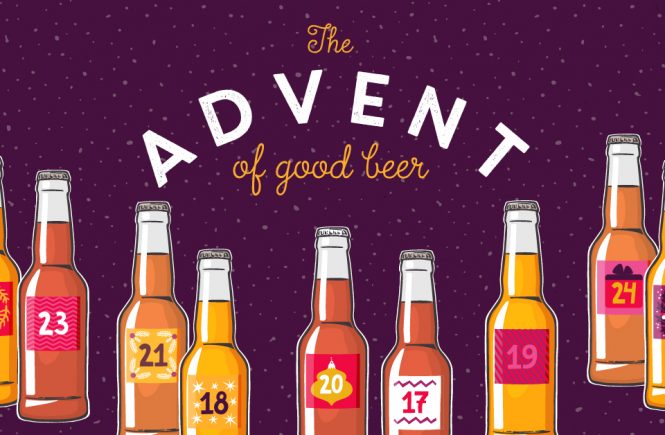A prized Québecois beer makes its long-awaited return to Ontario

This past February, over thirty bars around the world marked the 10th edition of Péché Day, Brasserie Dieu du Ciel’s annual celebration of its renowned Imperial Coffee Stout, Péché Mortel. This take-no-prisoners stout and its namesake party had become molded into the circadian rhythm of craft beer until the onset of the COVID pandemic eliminated its distribution in Ontario. After partnering with a new importer, Péché Mortel, which translates to “Mortal Sin,” makes its long awaited return and this time in tall cans on LCBO shelves for the first time.
How a 9.5% Imperial Coffee Stout—often served using nitrogen instead of CO2—from a tiny brewery in Montreal made its way into the hearts and minds of beer drinkers worldwide is anything but happenstance. “When I decided to brew a beer with coffee, I wanted to make sure it’s not just in the name,” Jean Francois Gravel, co-founder and brewmaster of Dieu du Ciel told me. Most coffee stouts and coffee porters in the United States or England in the early 2000s, like Fuller’s Chocolate Stout, had delicate coffee notes, which accented a sweeter malt backbone. Being an avid coffee drinker and seeking to push the envelope, Gravel saw an opportunity. “I told myself if I do a coffee stout it’s definitely going to be coffee forward,” he said.
That’s exactly what you get with Péché; it’s like a barista dropped a double espresso shot into your boozy stout. In this case, fair trade coffee from lauded Montreal roaster Café Rico. Some dark fruit sits in the cut of the slight acidity from the roasted malt. It finishes somewhat dry for the style making it difficult to content yourself with just one glass, especially when it’s pouring on a nitro faucet, which gives it added body and a velvety texture. The alchemy of caffeine and alcohol create an unmatched buzz. It’s a slap to the face and a warm hug all rolled into one glass. Everyone who’s tried it has a Péché story.

As Gravel puts it, “that’s the danger when you reach that point on our menu. You start with one Péché and your next beer might be another Péché [laughs].” The first beer to embrace coffee made instant waves on popular rating sites like RateBeer and BeerAdvocate, which helped send tourists flocking to Dieu du Ciel’s cozy brewpub; a pilgrimage to try one of the world’s best beers.
When pressed to answer why he thinks Péché continues to resonate with beer drinkers, Gravel points to its unforgettable taste and another practical reason. “It’s a beer that travels so well with a long shelf life. Anytime someone would have it at a bar it would taste great,” he explained. In fact, its bold flavor and alcohol content gives it added resistance to changes in temperature and time to the point where many continue to cellar the stout and its prized annual variants for many years past their born on date.
“It’s become more than just a beer,” explained Ben Metcalf, co-owner and cellarman of Arabella Park Beer Bar in Kitchener. “What makes it special—other than being so obviously delicious—is its fortitude […]. People just want to be friends with it.” For me, Péché represents the very best of what craft beer can offer: a great story, unmatched consistency, and most important of all, deliciousness.
 When I ask Ralph Morana, who has hosted Péché Day at Bar Volo in Toronto for many years, to explain the lure of Péché he believes it comes down to brass tacks taste. “Péche Mortel is one of the smoothest Imperial Coffee Stouts that I have ever had. When you drink it, the beer goes down so easily and if you have several, you will not know what hit you,” he said.
When I ask Ralph Morana, who has hosted Péché Day at Bar Volo in Toronto for many years, to explain the lure of Péché he believes it comes down to brass tacks taste. “Péche Mortel is one of the smoothest Imperial Coffee Stouts that I have ever had. When you drink it, the beer goes down so easily and if you have several, you will not know what hit you,” he said.
Even though the beer hasn’t been regularly available, it hasn’t stopped some bar owners from finding creative ways to list it. “We were on our last bottle from a case of a very rare edition of Péché Mortel and just hid the bottle in the back of the fridge,” admits Ken Inouye, manager of The Brain—Hamilton’s best craft beer bar. “It lasted hidden for over a year until some beer nerd finally noticed it on the app and asked for it. They loved it,” he explained.
Now that Gravel and his team worked through packaging trials, a new label design, and guided the beer through LCBO’s laborious submission process, he’s excited to be back in Ontario for the long term. “Now that the path is set we should be able to get the beer there a couple of times a year,” he said. If the 10th anniversary of Péché Day was any indication, best act fast if you want to write your own Péché story.




